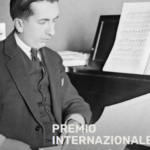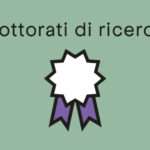15 Gen Duni: A 18th century musician from Matera to the heart of Europe (Call for Papers, 3-5 aprile, 2020)
The life of Egidio Romualdo Duni (Matera 1708–Paris 1775) offers a paradigm of the international career typical of Naples-trained musicians in the early eighteenth century. Son of a maestro di cappe a in the town of Matera, formerly the capital of the province of Basilicata in the Kingdom of Naples, Duni was trained in one of the famous conservatoires of Naples, where musical education was dominated by Durante and Leo.
The first part of his eventful life remains obscure, perhaps because he was sent at the age of twenty on a diplomatic mission from the papal court to Vienna, in the same period as Metasta- sio’s arrival there. His operatic debut took place in Rome in 1732 (three years earlier than was previously supposed) and in 1735 his opera seria N erone was compared to Pergolesi’s Olimpiade. Thereafter Duni sought to establish himself as an opera composer in many places: after Rome, Florence and Milan he moved to London, where he composed for the King’s Theatre in 1737 the last opera sung on stage by Farinelli. He then moved to the Netherlands, where he was enrolled at the University of Leiden and became active as a composer of chamber music (two collections printed in London and Rotterdam). When he returned to Italy he became a maestro di cappe a in Bari (a few kilometres from Matera), and thereafter composed his first oratorios. After staging new operas in Naples (1746), Genoa (1748) and Lucca (1749) he took up service as maestro di cappe a to the duke of Parma, Filippo di Borbone, brother of the king of Naples. But only after 1753, thanks to the new theatrical taste imposed in Parma by its theatre director, Du Tillot (especially opera seria and French music) did Duni go back to writing for the stage. With the arrival in Parma of Carlo Goldoni, who found in Duni a personality similar to his (and afflicted, like him, by nervous problems), he composed La Buona figliola (1756) later revived in Paris to coincide with Goldoni’s move to France. In fact Duni himself had settled in Paris in 1757, where he soon established himself as a composer of successful operatic comedies (collaborating with Favart and An- seaume), as well as writing music for court entertainments. With the French spelling “Duny”, he was elected director of the Comédie-Italienne in 1761 and, if not without criticism, continued to produce dozens of opéras-comiques of great and lasting success, whose scores were almost always published and spread throughout Europe until the end of the century, becoming a model for successive generations. For over a century Duni was recognised as one of the creators of opéra-comique in France, before his name became almost forgotten, though kept alive primarily by initiatives in his home town.
In Matera the Music Conservatoire carries Duni’s name and is one of the most active in southern Italy; Duni also inspires a Festival in Matera, which in the last twenty years has produced first modern performances of his music, recordings, editions and two international study days, in 2005 and in 2008. The latter conference, entitled “I due mondi di Duni”, was organized at Parma in 2013 (the proceedings published by Libreria Musicale Italiana in 2014). These initiatives have created a renewed interest in the figure of Egidio Romualdo Duni, but his life story is still partly mysterious and most of his works, both Italian and French, still await research and public performance. On the occasion of the celebration of Matera as “European Cultural Capital Town 2019″, the Conservatorio Duni of Matera, with the collaboration of the University of Basilicata and other Italian and foreign institutions, has launched an ambitious programme of initiatives for the creation of the “Duni Archive”. This will permit the creation of digital copies of every composition by Egidio Romualdo and his brother musician Antonio Duni, scattered in libraries all over the world, supporting their study and historically informed performance. The present International Conference forms another such initiative, which will propose for the first time a systematic examination of the contacts and interrelations that Duni made with the main Italian and European centres of his time, from Naples and southern Italy to Rome, from Florence, Genoa and Milan to Vienna, London, Leiden and Rotterdam, Parma and then Paris. The Organising Committee is eminently representative of this international dimension and will act as a stimulus to involve new generations of researchers, in particular through collaboration with the Italian Society for Musicology and the Société Française de Musicologie (supported also by the Institut de Recherche en Musicologie in Paris). The Duni Archive at Matera Conservatoire will in turn use the results of this first International Conference to focus its activities over the coming years, aiming to broaden its remit as a Research observatory to embrace the many important musicians coming from southern Italy at the time of Duni.
We welcome proposals of 20 min. papers in English, Italian or French on any aspect of the European music life in connection with Duni’s international career: Italian opera and oratorio, French opéra-comique, theatres and spectacles, instrumental music, Goldoni and poesia per musica, etc. Please send before 15 February 2020 a title and an abstract up to 500 words to the Programme Commette:
Dr. Fiorella Sassanelli: fiosassanelli@gmail.com – copy to dinko.fabris@unibas.it









